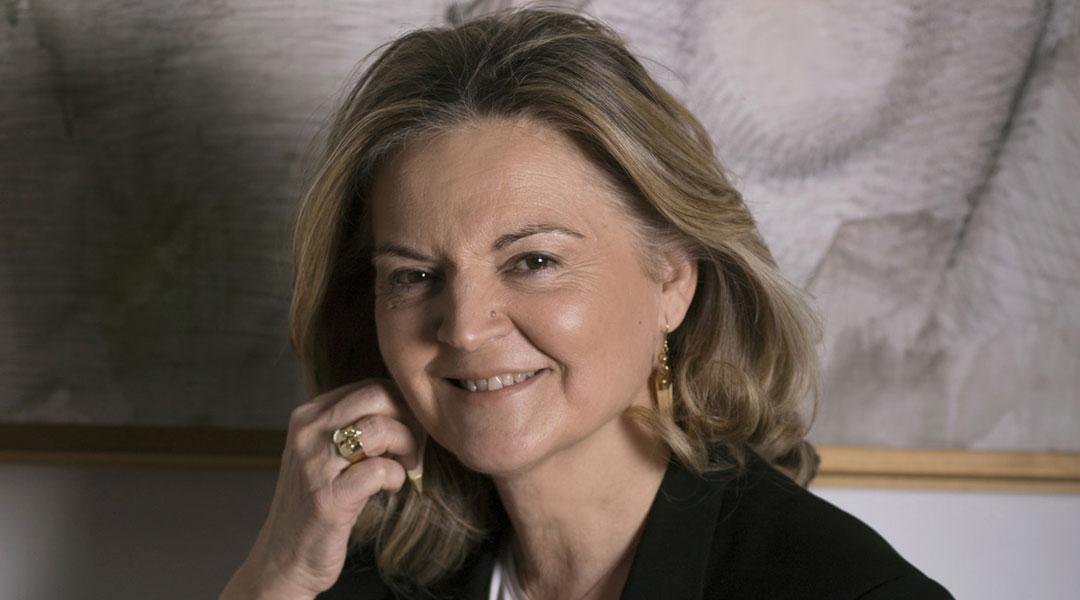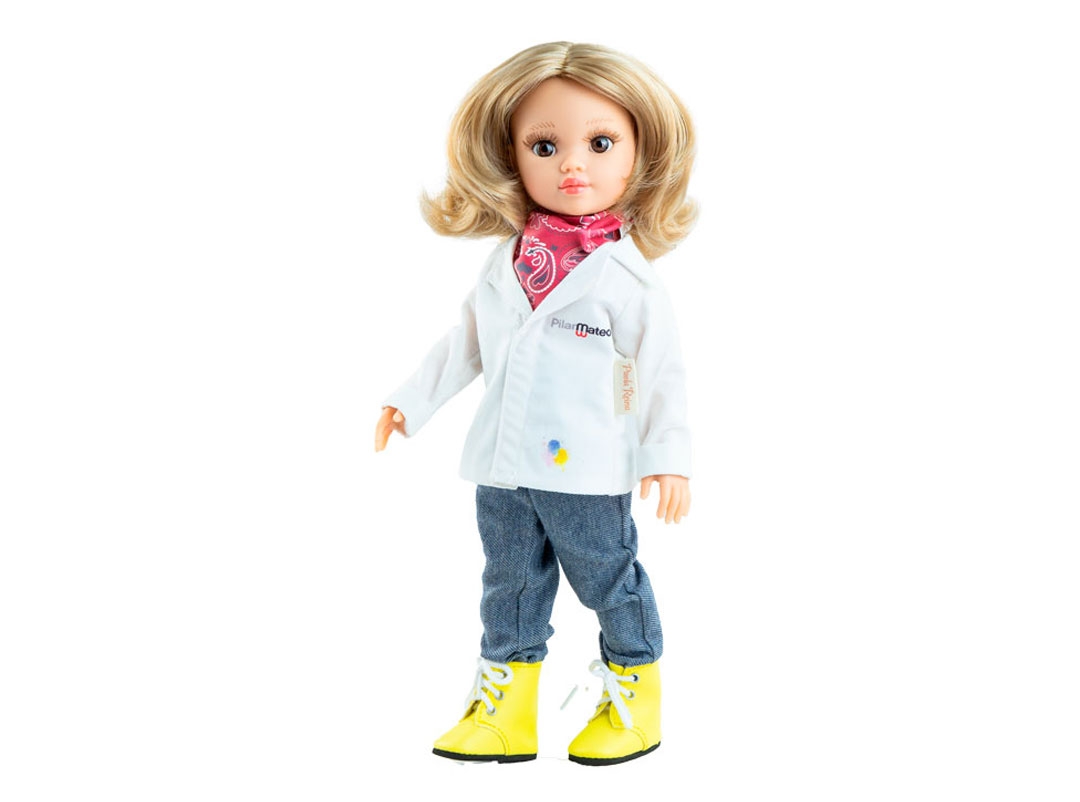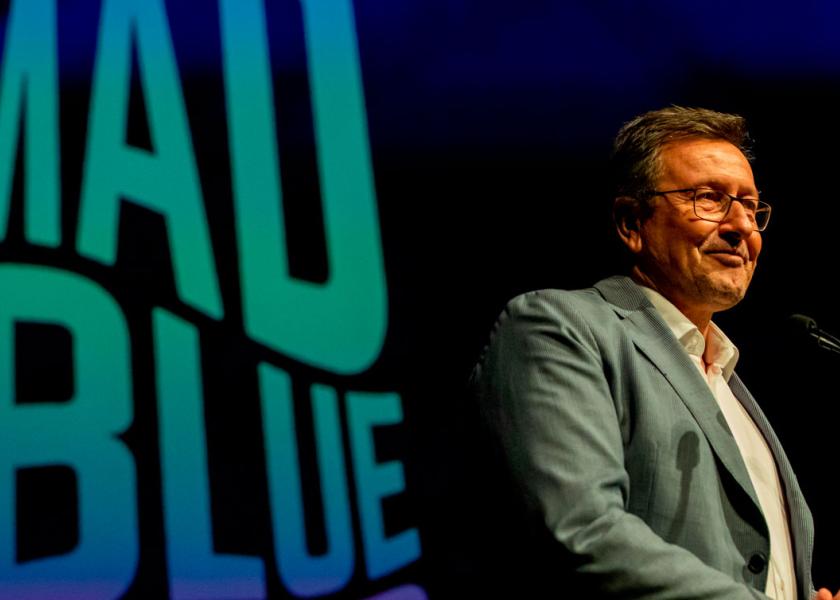Pilar Mateo
Leading the way

Scientist Pilar Mateo is the winner of the 2025 Talento a bordo Mujeres a Seguir Award. A firm believer in science at the service of society who has saved thousands of lives with her innovations, especially in conditions of poverty where endemic diseases wreak havoc. Her career also leads the way for younger women who embody the future of science.
Curiosity has been the trait that has made Pilar Mateo (Valencia, 1959) one of the most highly respected scientists in Spain and the world. Her inventions, especially paints with insecticidal properties to slow down the spread of diseases such as malaria, dengue fever or Chagas disease in disadvantaged areas, have warranted her dozens of prizes. Her latest is the 2025 Talento a bordo Mujeres a Seguir Award—sponsored by Iberia—, which recognizes women capable of imagining new horizons and transcending their limits. Pilar, a firm believer in science at the service of society, is incredibly grateful, but there is another type of recognition that stays with her: “The best prize I’ve received throughout my life is the gratitude from people whose loved ones haven’t fallen ill.”
Pilar was a pioneer who chose science when few women did. For this reason, now that she is a role model, she encourages young women to join the field. Precisely to defend her creative skills and encourage them in the scientific field, she launched the Women Paint Too initiative. “We women represent over half the world population, and we cannot waste all that talent because we increasingly need more solutions to the challenges set by a global population of more than 8 billion people,” she declares. Pilar remains undeterred, despite the shadow cast by the floods that destroyed her business, Inesfly Corporation, with headquarters in Paiporta (Valencia), a year ago. “Our labs were completely devastated by the water, which came up to two metres high.”
If we looked for the root of your passion for science, where would it lead? What do you believe pushed you towards it?
Perhaps it was curiosity for things, which is one of the fundamental traits of our existence, based on a constant desire to take notice of what happens around us. Curiosity, which is different to amazement or surprise, doesn’t pause in front of the things that life shows us—it never stands still—, but rather it pushes us towards new experiences. Today I’m still very curious about seeing what’s happening in the world.
We know more male than female inventors… Why do you think this is? Do you believe that women’s capacity for research has been historically undervalued?
If we do a historical analysis, we find proof that until well into the 20th century, women had no financial, social or educational rights. The few women who were able to do something in art, literature or science had to do so under a pseudonym to not be stigmatized. For example, Dr Maria Skłodowska received two Nobel Prizes, one in Physics and another in Chemistry, but we all know her as Marie Curie or Madame Curie, as if she were merely an assistant to her husband. This is why modern feminism focuses so strongly on language, to remove the gender bias imposed on women by the patriarchy.
“Curiosity, which is different to amazement or surprise, doesn’t pause in front of the things that life shows us, but rather it pushes us towards new experiences”
Scientific vocation among women is still smaller than among men. What would you say to young women to awaken their curiosity for science?
Structural changes in society are always really slow. Changing the laws isn’t enough, we need to change our mindset and that takes a lot of time. Slowly, we women have joined in research and university studies. We’re already the majority in many fields, but we still have to enter the world of science. Science is fascinating, but it requires hard work and dedication, and young women must be aware of this. No knowledge can be acquired without studying and, unfortunately, new technologies make us confuse information with knowledge. This can take a turn for the worse with AI. We’re losing our intellectual autonomy and increasingly depend on algorithms and machines controlled by a few people and companies.
For you, who didn’t have many female role models, what does it mean to become one?
Being a role model for other people, regardless of age, is a big responsibility. It has unfolded slowly… First, I won awards and honours, then streets and parks—and also murals—were named after me and now I even have my own doll. I’m extremely grateful for all this recognition which, in a way, proves that I’m on the right path. In my case, my main role models were my parents, with whom I always had a very special relationship.

Pilar The Inventor, a doll created to pay homage to Pilar Mateo, was chosen as the Best Toy Promoting Equality in 2024. © Muñecas Paola Reina / Asociación Española de Fabricantes de Juguetes
You’re a humanitarian scientist. Do you believe that science should be at the service of society?
Yes. It is important for science to resolve people’s problems, especially to improve the quality of life of those who live under inadequate circumstances. Knowledge is also a moral value, and we all have the duty to try to be useful to society. Being a good person and having a humanitarian outlook is not enough. We come to the world to learn and convey knowledge; that’s the best legacy we can leave.
When throwing yourself into eradicating deadly diseases in conditions of poverty, have you struggled to find funding for your projects?
Yes. We live in a black-and-white world that considers that a business can only be designed to make money and can’t have a social side. For many years, that has conditioned the funding of my projects because they have never fit into the international cooperation box designed for NGOs, nor into the research that universities or big corporations carry out.
“We come to the world to learn and convey knowledge; that’s the best legacy we can leave”
Do you ever stop and think about the number of lives you have saved thanks to your research?
In general, health researchers have certain social commitment. I’ve never stopped to think about how many thousands of people I might have saved, not only from dying but also from falling ill. We have to remember that many people infected with endemic diseases do not die but rather suffer the side effects for many years of their lives.
In recent years, there’s a tendency to undervalue scientific knowledge, to the point of disregarding expert recommendations. What message would you send to the incredulous?
If there had been no scientific progress, we’d still be living in caves like the Cave of Altamira. When there is no progress or it is not shared, societies become stagnant. When the opposite happens, they thrive. These changes are the result of education and are typical of modern societies. Now, we don’t only have to deal with science denial, but also what American philosopher Nathan Ballantyne calls “epistemic trespassing.” This is what happens when someone who has competence or expertise to make good judgements in one field moves to another field where they lack competence—and pass judgement, nevertheless. Therefore, the problem is not only people who, without knowledge, call themselves influencers, but rather experts who fall for the fallacy of authority. An example: can I, as an expert in chemistry, speak with confidence, without a shadow of a doubt, about telecommunications or macroeconomics? No, but this kind of situation often happens and conditions that disdain for science which, by definition, requires accuracy.


